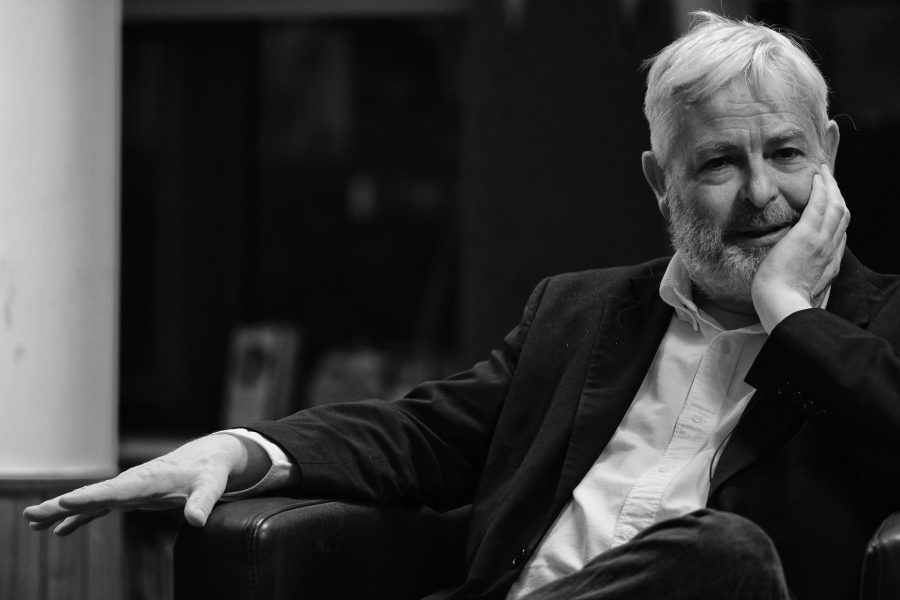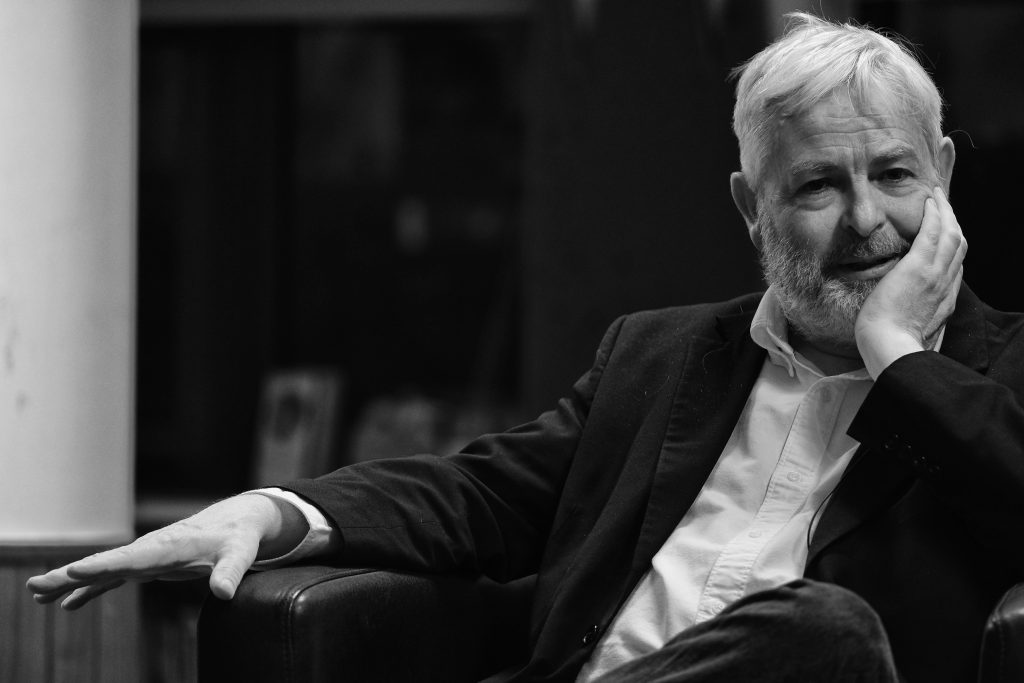

MR. WILDER AND ME by Jonathan Coe. Europa Editions, 256 pages. $38.50. Rating: NNNNN
Award-winning British novelist Jonathan Coe returns with a tender coming-of-age tale about a young woman, a story that is also a luminous, poignant portrait of legendary screenwriter/director Billy Wilder, the man who gave us character-driven, ideal final lines including “nobody’s perfect” and “shut up and deal.” Wilder produced masterpiece after masterpiece for years: Double Indemnity (1944), Sunset Boulevard (1950), Ace In The Hole (1951), Some Like it Hot (1959), and The Apartment (1960).
Crediting Robert Fischer’s 2014 documentary Swan Song: The Story Of Billy Wilder’s Fedora as his main source, Coe compassionately plumbs the lure of nostalgia, what his protagonist Calista refers to as “a sudden, transitory but overwhelming sense of loss and longing.”
The narrative is bookended by scenes in 2013 London, where Calista, a BAFTA-voting film composer now in her late fifties, is creating a suite in a minor key called Billy for chamber orchestra, a piece inspired by the time she spent as a Greek translator for Wilder on the 1977 set of Fedora.
Calista’s journey begins in July 1976, after university and before launching her early professional life as a music tutor. Then she flies from her home in Athens to New York, taking a series of buses west to California for her whirlwind American tour. En route, she meets fellow traveller Gill, who invites her to tag along for one night in Hollywood to dine with her father’s old filmmaking friend he met in London during the war, a Sherlock Holmes enthusiast.
The young women arrive at the posh bistro directly from the Santa Monica beach looking grubby and underdressed in their cut-off shorts and T-shirts. They are the guests of the elegant and bemused Billy and Audrey Wilder and their friends Iz and Barbara Diamond. Gill is soon bored by the film chatter and the sycophants who swing by their table to explain to Wilder how his pictures changed their lives. But Calista is fascinated by the evening’s artistic turn and, over martinis, solves a story problem in the screenplay for Diamond and Wilder’s new collaboration, Fedora.
By the late 1970s, Hollywood producers consider Wilder’s work out-of-step with the times and a financial risk, so he ends up making this passion project with money from German investors. When asked by a journalist how it feels to be back in Munich where he’s shooting the interiors, Wilder jests, “I think it puts me in a kind of win-win situation… If it’s a huge success, it’s my revenge on Hollywood. If it’s a flop, it’s my revenge for Auschwitz.”
The movie itself is about a Garbo-like recluse, the titular Fedora, a beautiful woman nobody has seen for years. When a producer (played by perennial Wilder favourite William Holden) goes looking for her on the Greek island where she lives, he cannot get close because the locals guard her privacy.
Calista looks back on her heady, impressionable days on Fedora’s set when she translated for Wilder with Greek journalists, rubbed shoulders with the great Hungarian film composer Miklós Rózsa, dodged autograph hounds for Holden and served as Iz Diamond’s personal assistant.
She reflects, “Billy’s urge to create, to keep on giving something to the world – a fundamentally generous impulse – had been as strong as ever.” She also recalls with affection his advice that, “Whatever else it throws at you, life will always have pleasures to offer. And we should take them.” An amusing telegram to your spouse, for instance: “Unable to obtain bidet – suggest you do handstand in shower.”
Film nerds will delight in references to Ernest Lubitsch, who “could do more with a closed door than most directors can do with an open fly,” and to the then up-and-coming new generation of filmmakers: Coppola, Scorsese and Spielberg, the “kids with beards.” A deep-flashback section that covers Billy in 1933 Berlin and 1944 London, written as a screenplay, is not only apt emotional exposition, but also a fitting tribute to an Academy Award-winning writer.
Life-affirming, genuinely affecting, sublime, Mr. Wilder And Me is a joy to read.
Janet Somerville is the author of Yours, For Probably Always: Martha Gellhorn’s Letters Of Love & War 1930-1949, available now in audio, read by Tony Award-winning Ellen Barkin.












